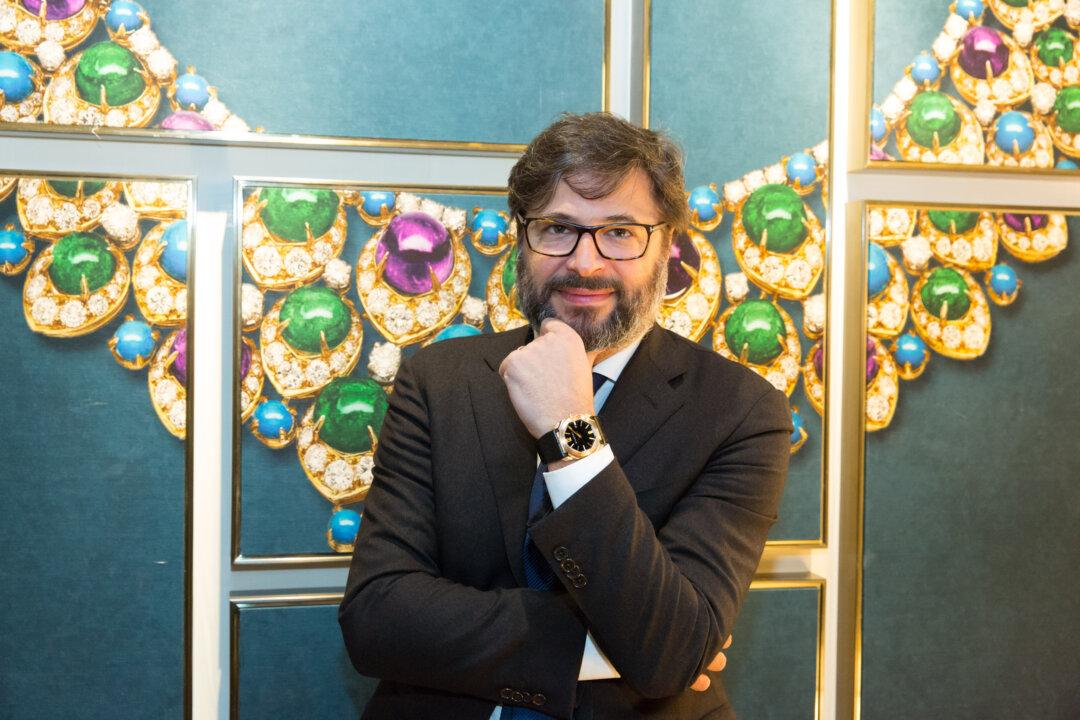Founded in 1884 by Greek silversmith Sotirios Bulgari, the luxury brand that carries his surname is undoubtedly all Roman.
While most watch brands are based in Geneva and Italian fashion brands choose Milan as headquarters, Bulgari has stayed true to Rome. Its many product lines, which include jewelry, watches, fragrances, and accessories, are informed by a Roman aesthetic that is inspired by the city’s architecture, lifestyle, and a certain Roman mindset.
Guido Terreni, managing director of Bulgari Watches, spoke to the Epoch Times about Bulgari’s Roman DNA, the brand’s distinctive features, and the new timepieces at this year’s Baselworld.
Epoch Times: What is the DNA of Bulgari? And what makes your brand unique?
Guido Terreni: First of all we have to start with the fact that we are a Roman brand. In hard luxury, there are no Italian brands. You have Geneva-based companies, especially in the watches. Or you have French-based companies. We are one of the leaders in hard luxury, rooted in jewelry, and we come from Rome.
From a cultural point of view, Italians, and especially Romans, are much different from Swiss or French. The way of living and enjoying life in Italy is very different.






